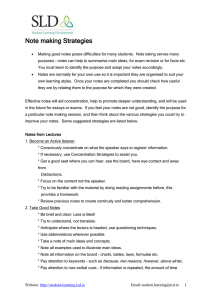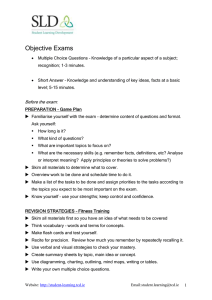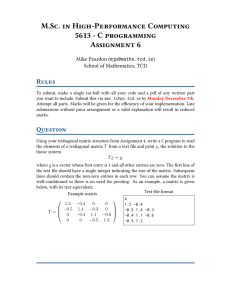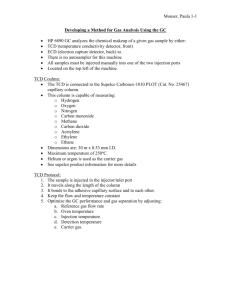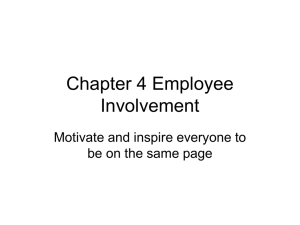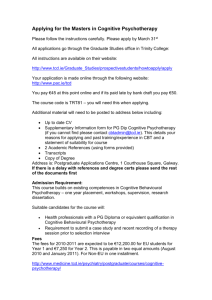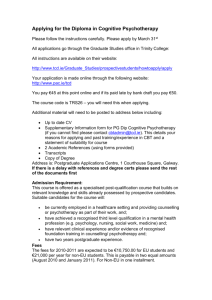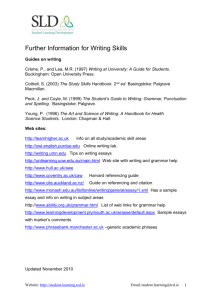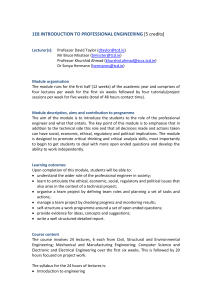Motivational Strategies
advertisement
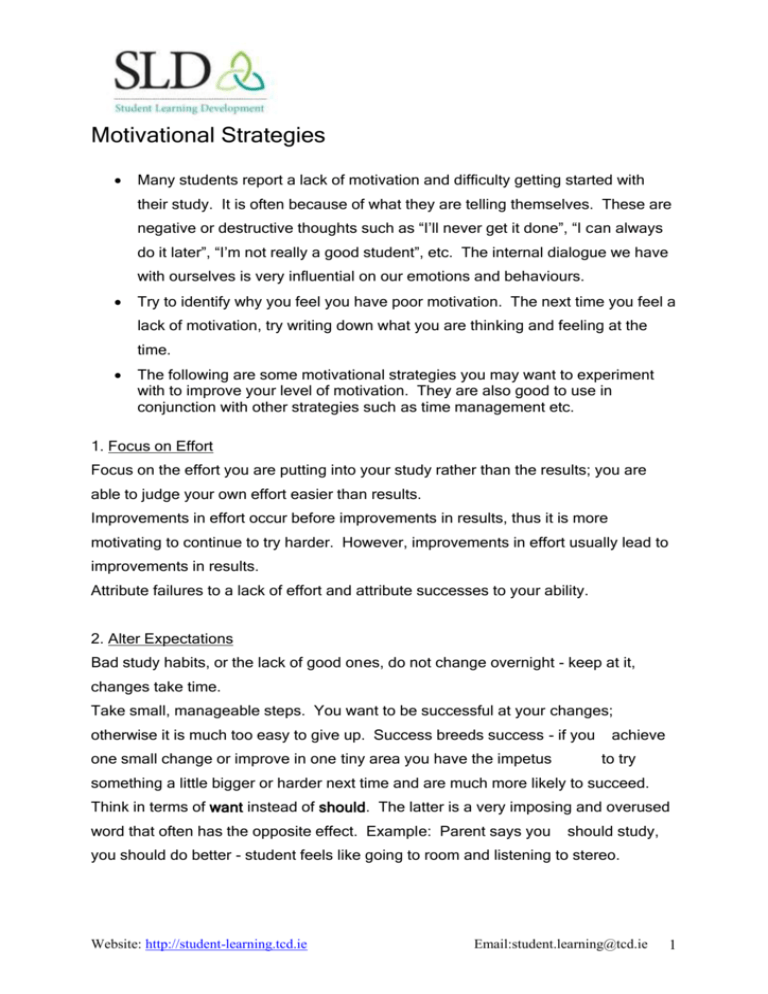
Motivational Strategies Many students report a lack of motivation and difficulty getting started with their study. It is often because of what they are telling themselves. These are negative or destructive thoughts such as “I’ll never get it done”, “I can always do it later”, “I’m not really a good student”, etc. The internal dialogue we have with ourselves is very influential on our emotions and behaviours. Try to identify why you feel you have poor motivation. The next time you feel a lack of motivation, try writing down what you are thinking and feeling at the time. The following are some motivational strategies you may want to experiment with to improve your level of motivation. They are also good to use in conjunction with other strategies such as time management etc. 1. Focus on Effort Focus on the effort you are putting into your study rather than the results; you are able to judge your own effort easier than results. Improvements in effort occur before improvements in results, thus it is more motivating to continue to try harder. However, improvements in effort usually lead to improvements in results. Attribute failures to a lack of effort and attribute successes to your ability. 2. Alter Expectations Bad study habits, or the lack of good ones, do not change overnight - keep at it, changes take time. Take small, manageable steps. You want to be successful at your changes; otherwise it is much too easy to give up. Success breeds success - if you one small change or improve in one tiny area you have the impetus achieve to try something a little bigger or harder next time and are much more likely to succeed. Think in terms of want instead of should. The latter is a very imposing and overused word that often has the opposite effect. Example: Parent says you should study, you should do better - student feels like going to room and listening to stereo. Website: http://student-learning.tcd.ie Email:student.learning@tcd.ie 1 Instead try to reframe it in terms of what you want - I want to study so I do better on my chemistry exam, that would make me feel good about myself. * Learn from your mistakes - No one is Perfect! 3. Changing Thoughts to Change Motivation * Identify destructive thoughts that are inhibiting your study. * When you find yourself thinking these thoughts, tell yourself to STOP! (under your breath of course!). This is called “thought stopping”. * Immediately replace with some constructive thoughts. It’s best to have a standard list of these that are well rehearsed and can be used whenever necessary. * Examples: “I have been successful at my study this week - keep up the good work”, “I really understood that lecture/paragraph/chapter”, “I am able to concentrate and will do even better tomorrow”. * They need to be realistic and tailor made so that you believe them. * Redirect your attention back to the study task. 4. Use Positives (rewards) to Encourage Negatives (things you don’t want to do) * Study your favourite subject right after you have studied your least favourite. * Use a reward after you have achieved a study goal. For instance you can ~ congratulate yourself ~ read a novel or play a game ~ use food such as sweets or gum ~ draw or go for a run ~ make a phone call or write a letter ~ use mental rewards like imagining a pleasant scene or daydreaming. * When choosing a reward, make sure they are tailor made to suit you (what is rewarding for one may not be for another) and make sure they are easily available. What makes a reward nice is that it is something extra. * If you did not achieve your goal, no reward! You are responsible. Website: http://student-learning.tcd.ie Email:student.learning@tcd.ie 2

